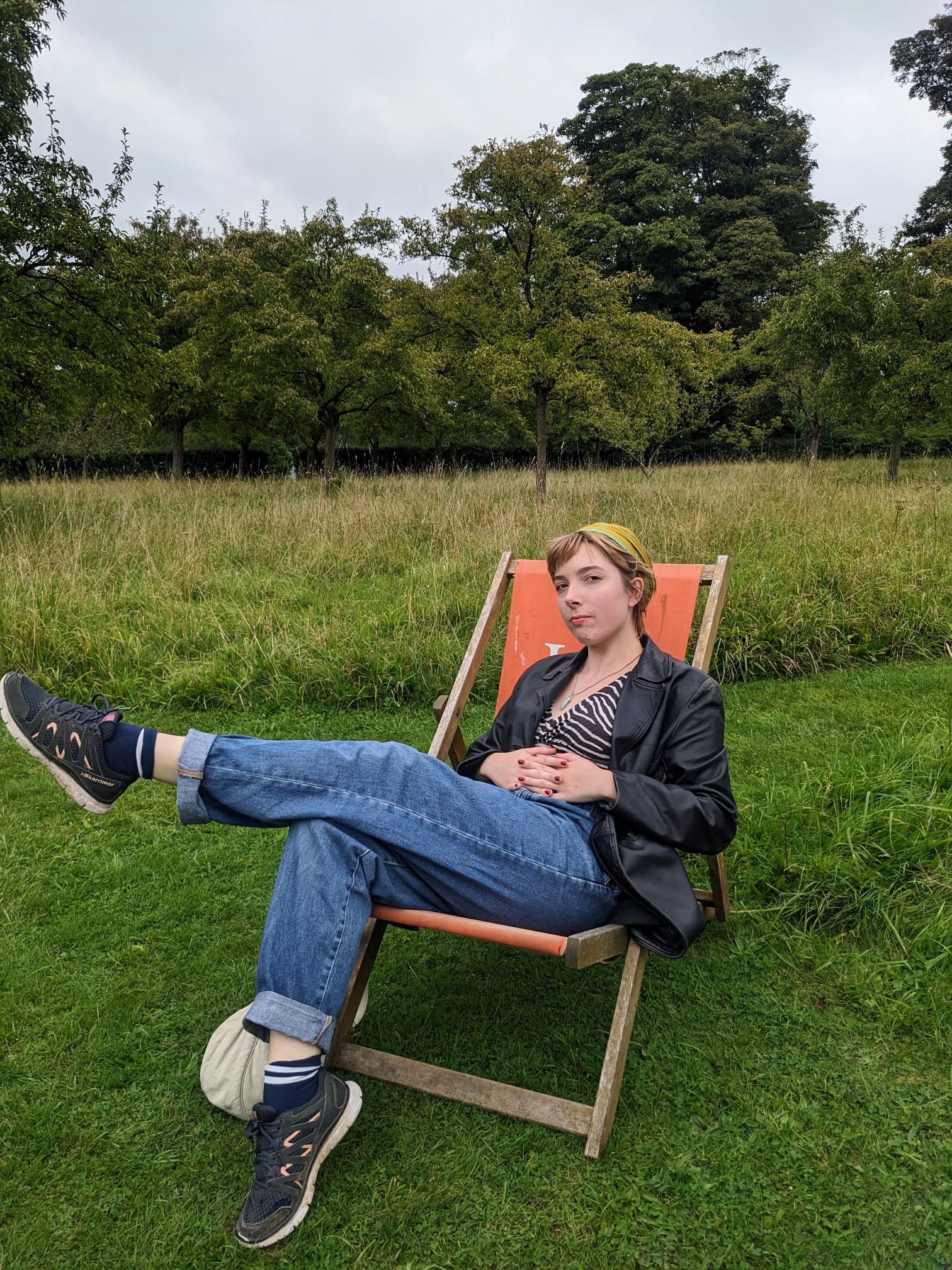
October 24, 2023, by brzms6
The work/university/life balance: Why I decided to do a part-time master’s
Eleanor Flowerday, BA English graduate
After graduating with a degree in BA English in 2021, I was lucky enough to get onto the Creative Pathways internship programme, followed by a period of working in communications and marketing for a Nottingham based arts charity. During that period, I attended a couple of residential creative writing courses, where I got to meet a diverse group of readers and writers to explore some of my favourite genres of literature. It was at this point that I realised I wasn’t quite finished with English Literature.
Whilst I was still working in marketing, I met up with one of my undergraduate lecturers. It soon became clear that I wanted to go back to university as soon as I could. After a bit of time deliberating with the help of the University of Nottingham’s careers team, I decided on MA English Literature.
At the time, I didn’t know that master’s degrees were funded differently from undergraduate degrees. For many students, a master’s degree might be sponsored by an employer – or there may be a scholarship that covers living costs. This was not the case for me, and I was worried that I simply would not be able to afford to do a master’s degree.
Unfortunately this is the case for so many students who come from low income backgrounds and have no access to any funding that could support their studies. What this means is that potential researchers and academics are being pushed out, simply because they cannot afford to do a masters. My only option was to do a part-time masters: I would need to have a job (or two). Nevertheless, the more I thought about it, the more I realised how beneficial a part-time masters would be for me:
- Even if your masters doesn’t directly relate to your part-time work, they can still feed into one another. An English degree gives you a range of transferable skills, but your job might also provide you with communication skills and community insight that can help ground your studies. If you’re working in the cultural sector, you’ll often find your colleagues have a really diverse range of knowledge that can feed your studies. I’m currently working alongside historians, archeologists, theatre makers and a zoologist.
- A part-time masters means you have twice the amount of time to complete your degree. It also provides you with more time to focus on your studies, and gives you access to university services such as libraries, archives (and your lecturers) for a longer period of time.
- You hear it all the time – university can be like a bubble, and as much as you might love your course, sometimes it can be nice to step outside. Spending time working in your local community can really affirm your reasons for doing a masters in the first place.
I now have two paid jobs and one voluntary role alongside my masters. Both of my paid jobs are zero hour contracts. Top tip: zero hour contracts can be particularly good for students who are looking for flexibility. When interviewing for one of my jobs, I made sure to state that I would be starting a master’s and would need flexibility. It’s always good to be transparent about your availability and capacity with potential employers.
It’s important to note that if you’re working unsocial hours or doing sporadic shift work – you might find it starts to take a toll on your body and disrupt your studies. Another top tip is to find that work/uni/life balance. The best job is one you can leave at the end of the working day and pick up the next morning. Your brain will already be busy with your studies so it’s important to find work that isn’t too mentally taxing or physically exhausting. The most important thing is to look after yourself. Your biggest priority has to be your mental and physical health.
Not quite finished with university? Have you thought about further study or interested to know what that might involved? Visit our website today to find out more.
No comments yet, fill out a comment to be the first

Leave a Reply